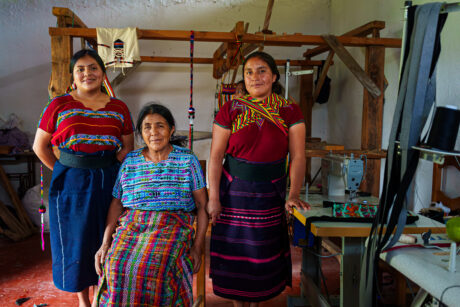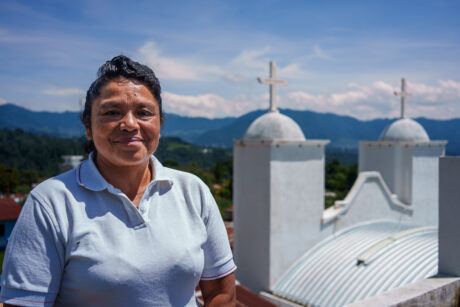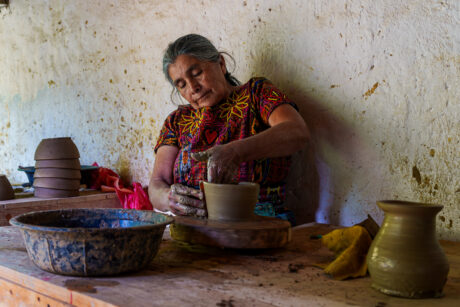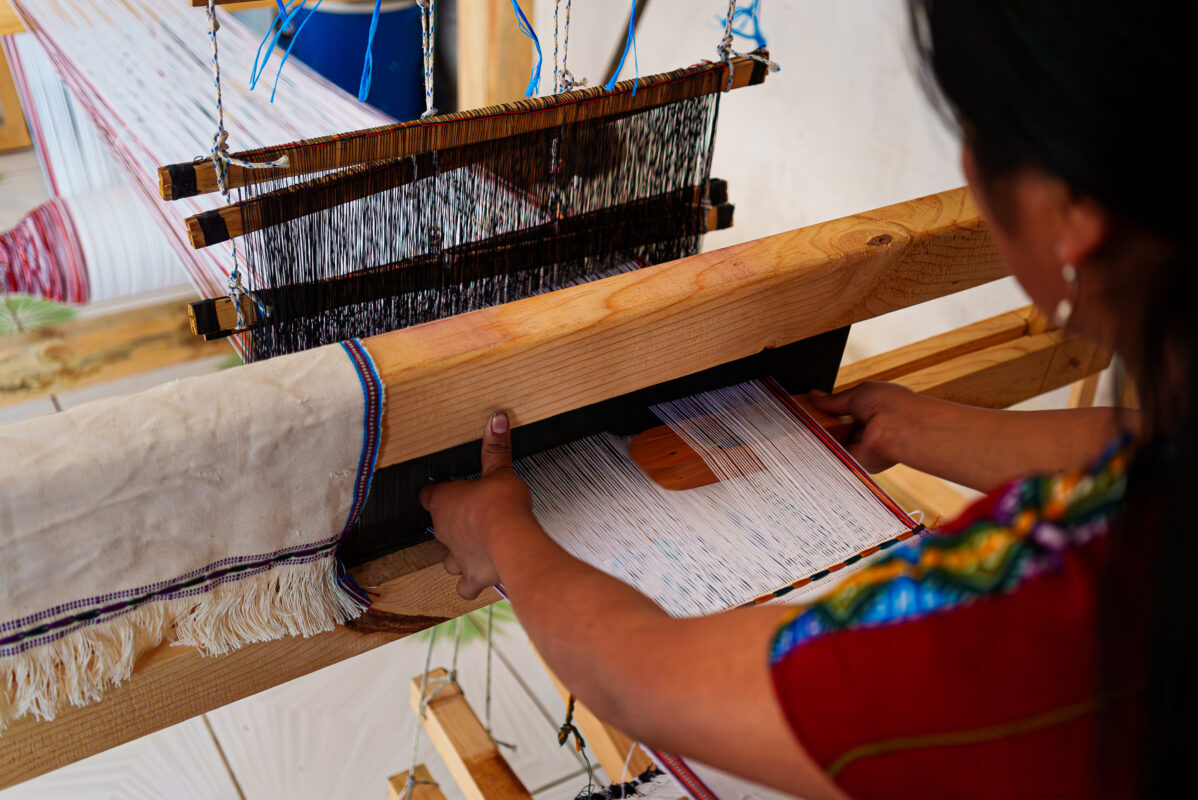Chichicastenango, GuatemalaRaízes culturais vibrantes e conhecimento ancestral de sua população indígena de K'iche correm profundamente neste pitoresco, cidade montanhosa em quiché, onde fica entre uma colcha de retalhos de pequenas terras agrícolas nas Terras Altas Ocidentais.
Mas por trás de suas belas e coloridas paisagens, os jovens de Chichicastenango enfrentam desafios significativos, incluindo isolamento social e emocional, dificuldades econômicas, depressão, oportunidades profissionais limitadas e pressão para sustentar suas famílias. A pandemia exacerbou todos esses desafios.
Os obstáculos que os jovens enfrentam não se limitam apenas a Chichicastenango. Nos municípios rurais das Terras Altas Ocidentais da Guatemala, como Comitancillo, San Pedro Necta e San Andrés Sajcabajá, os jovens lutam para encontrar um futuro sustentável para si e para as suas famílias.
“Minha comunidade tem sido caracterizada pela falta de unidade. Não nos conhecemos além de nossos rostos,”Diz Hillary Dayana Pérez Bautista de Huehuetenango. “Esta desunião cria espaços de marginalização. Então, Se houver mais problemas, Nós nem percebemos isso. Eu gostaria de mudar isso no futuro. ”
Quando esses desafios enfrentam ameaças de violência ou conflitos em andamento incorporados no tecido social da comunidade, riscos compostos e os jovens têm muito mais probabilidade de procurar oportunidades em outros lugares. Muitos muitas vezes tentam - e de fato, falhar - fazer a perigosa jornada para os EUA. fronteira, uma tendência que se composta nos últimos anos.
Felizmente, Há esperança de mudança.
Bautista faz parte de uma rede de alguns 160 Jovens em todo o Western Highlands envolvidos com a Rede de Vozes da Paz para Juventude (conhecido como Porta -voz da juventude e porta -vozes pela paz em espanhol), um grupo trabalhando para criar espaços coletivos de empoderamento.
Reunindo jovens de todo o país de diversas origens, culturas, e tradições - pessoas que normalmente não teriam a oportunidade de interagir, A Rede de Vozes para a Paz para jovens trabalha com esses jovens para aumentar a capacidade, Desenvolva confiança e conecte -se a questões que têm impacto em seu futuro.
Provou ser transformacional para pessoas como Cesar Morales, 27, de Chichicastenango, que ingressou na Rede de Vozes da Paz para a Paz em setembro em setembro 2021 e encontrou valor incrível na troca de idéias e experiências vividas com outros membros da rede.
“Fazer parte da rede me permitiu compartilhar espaços dinâmicos e trocar conhecimento, experiências, e informações com jovens líderes em outros municípios, muitos dos quais desenvolveram capacidades e competências para partilhar as suas preocupações e propostas para fazer a diferença nas suas comunidades,” Morales diz.
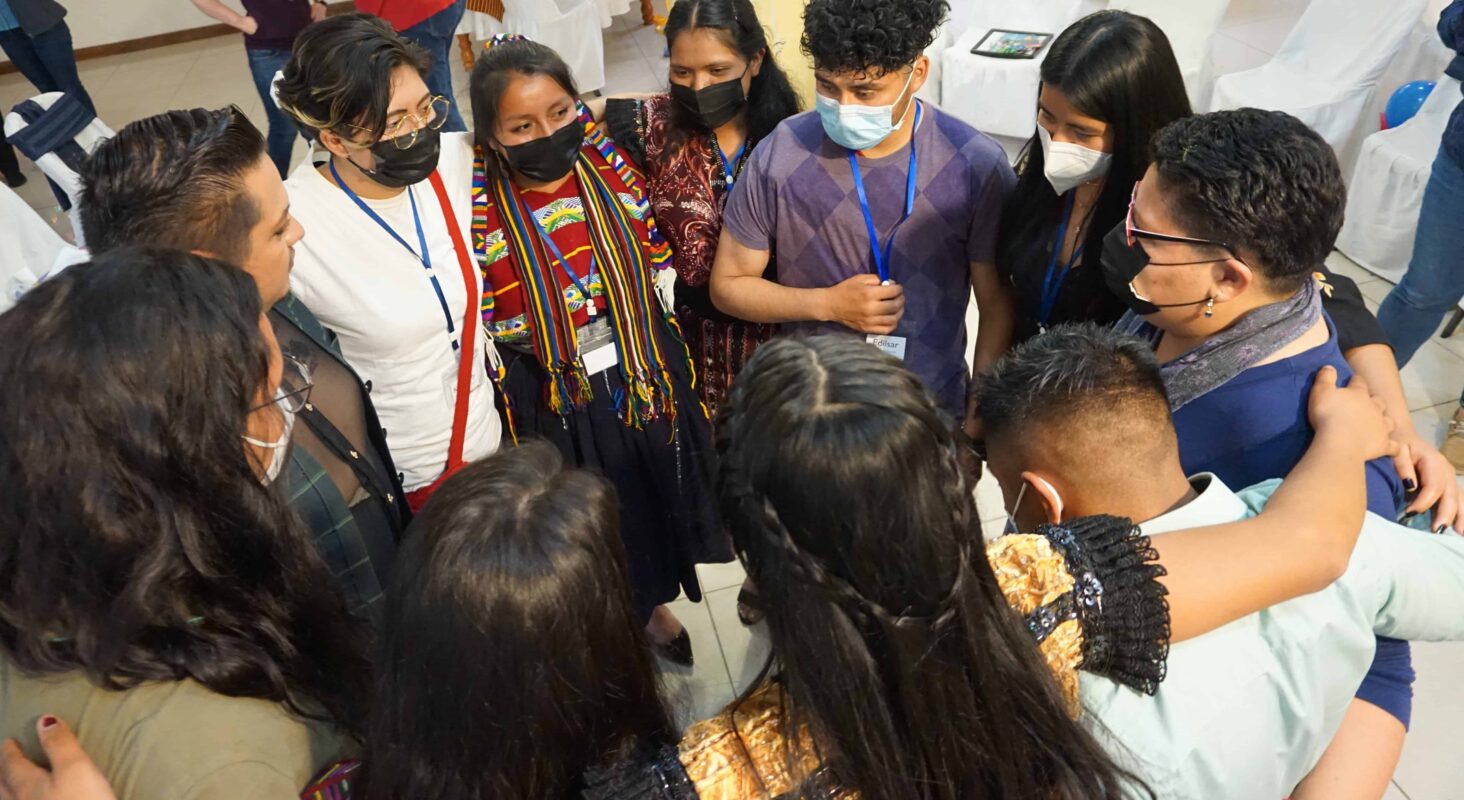
Os sentimentos de Morales sobre a rede são compartilhados por muitos. Em uma recente Feira da Paz realizada em Huehuetenango, 10 representantes da Rede Vozes Juvenis pela Paz reuniram-se pessoalmente pela primeira vez e compartilharam histórias íntimas entre si sobre os desafios significativos que superaram durante a pandemia. O denominador comum em cada uma de suas histórias foi o sentimento de pertencimento e propósito que encontraram no Youth Voices for Peace.
A rede de jovens expandiu as suas atividades com o apoio do Projeto de Construção da Paz, ou Tecendo a Paz em espanhol, Um projeto de 6,5 anos financiado pelos EUA. Agência para Desenvolvimento Internacional e implementado pela Creative Associates International em parceria com a Partnersglobal e o Propaz. O projeto foi projetado para reduzir o conflito social e a violência, e para fortalecer a coesão social nas terras altas da Guatemala ocidental.
Com o apoio do Tejienda Paz, A Rede de Vozes da Paz para jovens adota uma abordagem multifacetada da construção da paz, exigindo participação ativa dos membros da rede e incluí-los em diálogos e tomada de decisão, Enquanto trabalha na capacitação. Os tópicos de treinamento incluem transformação de conflito, Usando a tecnologia para comunicação eficaz, cibercativismo, os riscos de migração irregular e diferentes formas de comunicação, entre outros.
Na maioria das circunstâncias na Guatemala, A história iria parar por aí, Simplesmente porque os jovens não têm espaço ou oportunidade de colocar seus aprendizados em ação. Felizmente, esse não é o caso com esta rede. Usando teatro e mídia social como avenidas de expressão cultural e física, Os membros da Rede de Vozes para Jovens para a Paz são incentivados a compartilhar seu conhecimento adquirido com outras pessoas em sua comunidade.
“Agora me sinto confiante de poder orientar outros jovens neste processo, para que juntos possamos criar um impacto positivo em nossas comunidades,"Dizendo Gaspar Baltazar, O Memaler de Rede de Totonicopon, Explicando como sua participação o ajudou a crescer como líder da comunidade.
De forma similar, Quando perguntada sobre sua participação na rede, Ana Cristina leva de San Juan Cotzal, Quiche, diz que a rede juvenil “tem sido um espaço alternativo, onde posso informar minha comunidade sobre as realidades do conflito social, violência doméstica, Violência contra mulheres e migração, ao criar e compartilhar informações na mídia em minha língua indígena nativa. ”
Anabella Rivera, Diretor Executivo de Demos, a organização guatemalteca responsável por organizar e treinar a rede, diz que "manter -se como uma rede durante a pandemia" foi um dos maiores sucessos do grupo até o momento.
“E isso requer mais trabalho,Rivera diz. “Precisamos dar a eles as ferramentas para crescer e o conhecimento do que significa ser uma rede. A rede é um elemento de solidariedade e unidade para a juventude. No próximo ano, Espero ver uma rede mais consolidada que ofereça oportunidades tangíveis de transformação e crescimento. ”
Rivera está consciente de que os jovens estão enfrentando mais do que uma pandemia.
“A falta de oportunidades é o maior desafio enfrentado pela juventude,Rivera explica. “Eles estão perguntando o que farão com seus conhecimentos e habilidades. É por isso que a tecnologia é tão importante nos treinamentos. Ser capaz de se expressar efetivamente e capaz de usar ferramentas tecnológicas abre a porta para oportunidades de emprego e educação. É também por isso que identificar espaços para a participação cívica, como se envolver no processo eleitoral, é tão importante. ”
Morales, Baltazar, Toma e muitos outros agora têm um senso de agência e influência sobre o que acontece em suas vidas, suas comunidades e seu país.
E a rede continua a crescer. Em 2022, Vozes para jovens para a rede de paz estão prontos para aumentar para 225 membros, Expandindo para cinco novos municípios nas terras altas ocidentais.
De Totonicapán a Huehuetenango a Chichicastenango, o Projeto de Construção da Paz e a Rede Vozes Jovens pela Paz estão proporcionando aos jovens rurais habilidades e oportunidades tangíveis, criando esperança para um futuro melhor na Guatemala.
“A Guatemala precisa de líderes transformacionais que estejam comprometidos com o país e responsáveis por contribuir para uma mudança transcendental que irá melhorar a vida de todos,” Morales diz.
Talvez Morales estivesse se referindo a si mesmo em seus comentários. Depois de participar da Rede Vozes Juvenis pela Paz, Morales, como muitos de seus colegas de rede, agora está posicionado para ser esse líder, capaz de mediar conflitos e construir a paz para sua comunidade e para uma Guatemala próspera.
